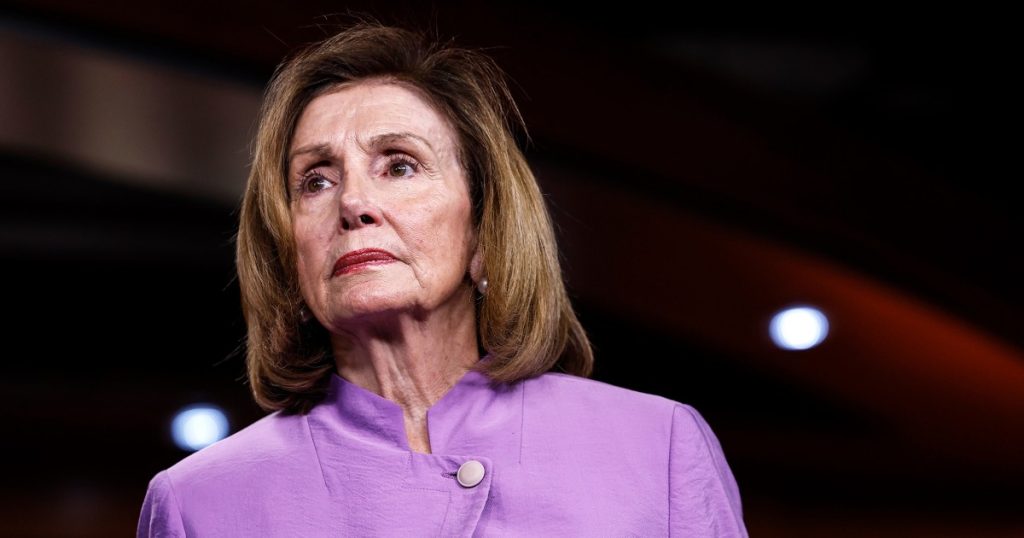Former House Speaker Nancy Pelosi recently called on Prime Minister Benjamin Netanyahu to resign, joining other Democratic leaders in criticizing the Israeli leader. Pelosi referenced the recent resignation of Israel Defense Forces’ intelligence chief over the Hamas-led attack on October 7, indicating that Netanyahu should take responsibility for these failures. She accused Netanyahu of obstructing peace and the two-state solution, suggesting that he may be afraid, incapable, or unwilling to achieve peace.
Pelosi’s remarks were made during a trip to Ireland, where she was awarded the Fulbright Ireland Public Service Award. Earlier in the month, Pelosi and other members of Congress signed a letter urging President Joe Biden and Secretary of State Antony Blinken to reconsider an arms package transfer to Israel, calling for a full investigation into a recent airstrike that killed World Central Kitchen humanitarian workers. More than 34,000 Palestinians have died in the conflict, while the Israeli government reported about 1,200 deaths in Israel during the Hamas attack on October 7.
Senate Majority Leader Chuck Schumer, the highest-ranking Jewish official in the U.S., has also called for new elections in Israel to replace Netanyahu, citing the coalition’s failure to address the aftermath of the Hamas attack. Despite these calls for change, the Senate recently passed a $95 billion aid package that includes $26 billion in aid for Israel and humanitarian relief in Gaza. President Biden is expected to sign the measure into law, demonstrating continued support for Israel despite the growing criticism of Netanyahu.
Pelosi’s criticism of Netanyahu aligns with a broader trend within the Democratic Party, which has been increasingly vocal in challenging the Israeli leader’s policies and actions. The call for Netanyahu’s resignation reflects concerns over his handling of the recent conflict with Hamas and the impact on the peace process. By urging Biden and Blinken to reevaluate arms transfers to Israel and advocating for a full investigation of the violence, Pelosi and other Democrats are signaling a shift in their approach to U.S.-Israeli relations.
Netanyahu’s tenure as Prime Minister has faced mounting criticism both domestically and internationally, with key figures like Pelosi and Schumer calling for his resignation or new elections in Israel. The failure to achieve peace and address the root causes of the conflict with Hamas has raised questions about Netanyahu’s leadership and his commitment to a two-state solution. The Senate’s passage of the aid package for Israel and Gaza highlights the delicate balance between supporting Israel and holding its leaders accountable for their actions in the region.
As Pelosi and other Democratic leaders continue to voice their concerns about Netanyahu and the situation in Israel, the need for a new approach to peace and security in the region becomes increasingly urgent. The complexities of the conflict, the humanitarian crisis in Gaza, and the challenges of achieving a two-state solution require a comprehensive and diplomatic response from the U.S. and its allies. By engaging in dialogue, promoting accountability, and advocating for a peaceful resolution, policymakers can work towards a more stable and secure future for Israelis and Palestinians alike.


